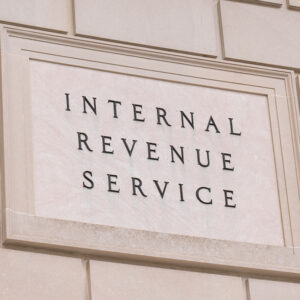GRAHAM: Will Direct File Finally Hold Tax Prep Companies Accountable?

For the typical American, paying federal income taxes is the most boring — and terrifying — thing we do every year.
It’s boring because auto mechanics and nurses and sales people have to dig around in file drawers and shoe boxes trying to find numbers to fill out government forms. It’s terrifying because one mistake, no matter how innocent, can lead to more paperwork, financial penalties or … the dreaded IRS audit.
Taxpayer dread has increased America’s $13.9 billion tax preparation industry. Companies like Intuit, H&R Block and TaxSlayer charge taxpayers a fee to help them pay a bill for something they didn’t buy and don’t want — income taxes.
No other bill gets paid this way. Has a plumber or doctor ever sent you a letter demanding you figure out how much you owe them for a new toilet or an appendectomy and then ordered you to send them the money? Or else?
For years, Americans have asked why they must do the IRS’s work for them. Instead of paying a third party to figure out the bill, why not have the IRS — which already has all of the W-2, 1099, etc. information — set up a system where citizens file their taxes directly?
Now they have.
This month, the IRS launched its Direct File pilot program that allows taxpayers who earned modest amounts and have simple tax bills to skip the third parties and pay directly.
It’s a small pilot program covering 12 states: Arizona, California, Florida, Massachusetts, New Hampshire, Nevada, New York, South Dakota, Tennessee, Texas, Washington and Wyoming. There are income caps for eligible filers and the window for participating in the pilot program is temporary, the IRS says.
It’s an idea “that’s at least 25 years late,” says Richard Kaplan, who teaches tax policy at the University of Illinois College of Law. “There are about 60 or so countries who’ve been doing this for quite some time. The IRS has been receiving reports on wages since World War II, and it’s been collecting data on capital gains and other income for decades.”
And yet, as modest as this attempt to connect taxpayers directly to the IRS is, well-paid lobbyists for the tax prep industry are trying to kill it.
According to the political transparency website Open Secrets, these companies had spent more than $90 million lobbying against the Direct File program as of last September. Their allies in Congress claim the funding being used for the pilot program was intended for a study and did not authorize an actual program.
“The outcome of the $15 million ‘feasibility study’ authorized by the Inflation Reduction Act was a foregone conclusion, and taxpayers are rightfully concerned about having the already distrusted IRS function as their tax preparer, filer and auditor,” said House Ways and Means Chairman Jason Smith of Missouri.
Supporters of the Direct File program respond that consumers are free to continue to pay tax prep services if they choose. While the IRS is hardly perfect, the big tax-prep companies have had their own problems.
Data have been sold to big tech companies, preparers have targeted minority communities, and millions of taxpayers have found themselves falling prey to a giant upsell scheme. An industry born out of need has metastasized into an economic bully, critics say.
“Of course, the paid providers, whether in person or through software, are upset about this because they don’t want the competition,” says Robert Nassau, director of the Low Income Taxpayer Clinic at Syracuse University College of Law. He calls Direct File “a wonderful idea and a long-overdue improvement to tax administration.”
As for the claims by the Big Tax behemoths that they already offer free services to low-income filers via an arrangement with the IRS, this, too, is a tale of attempting to smother choices for consumers.
Twenty years ago, Intuit and other commercial tax prep companies launched the Free File program, pledging to provide services to needy taxpayers via the private sector in exchange for the IRS not launching its own service.
However, multiple investigations found that the companies made the free service web pages extremely hard for consumers to find. And they used the websites to push people toward for-fee products.
In 2022, the Federal Trade Commission announced an administrative action against Intuit for misleading people about free tax filing with TurboTax. In January 2024, the FTC followed up with an order that the company end its deceptive advertising for allegedly “free” tax prep services.
There is big money at stake, reports ProPublica. “In a single year, tax prep companies led by Intuit generated $1 billion in revenue from customers who should have been able to file for free, according to one analysis.”
Direct File is an option for taxpayers this tax season, and while it’s a government program, it promotes that most capitalist of ideals: Competition. Having Direct File in the marketplace could lead to lower costs and improved service across the industry.
“I think this will lead to lower pricing for those who use a paid provider,” Nassau said.
Tax prep companies should stop complaining and start competing.
Please follow DVJournal on social media: Twitter@DVJournal or Facebook.com/DelawareValleyJournal








